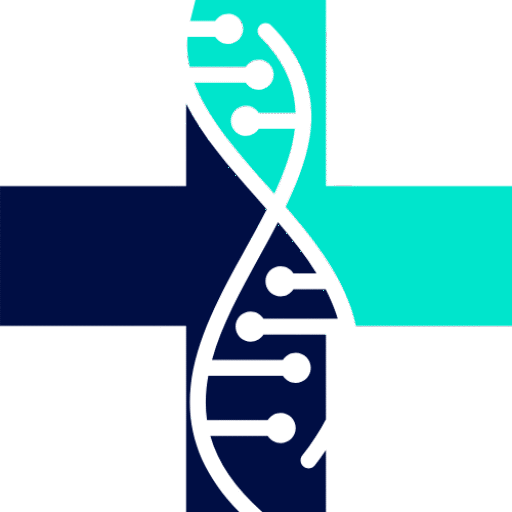This article talks about "Guerilla Wellness," which means taking charge of your health in ways that might go against what’s popular. It covers practical steps you can take to improve your well-being, from how you educate your kids to what you eat and how you live your daily life. The goal is to help you make choices that support a healthier lifestyle, even if they seem a bit unconventional.
Guerilla Wellness: How to Join the Health Rebellion!
Key Takeaways
- Homeschooling: Consider homeschooling your kids to control their education and avoid certain influences.
- Spiritual Side: Having a spiritual practice or community can improve mental health and provide peace.
- Prioritize Sleep: Getting enough quality sleep is crucial for metabolic health and overall well-being.
- Lift Weights: Resistance training builds muscle, which helps with metabolism and prevents frailty.
- Eat Meat: Eating meat, a long-standing human practice, is important for health, despite modern warnings.
- Get Sunlight: Sunlight exposure helps regulate sleep, improves mood, and can impact leptin sensitivity.
- Avoid Seed Oils: These industrial byproducts are harmful and contribute to various health issues.
- Connect with Nature: Spending time in nature can improve mood and overall well-being.
- Keep Your Circle Small: Limiting your social circle can reduce drama and promote peace.
- Eat Homecooked Meals: Cooking at home gives you control over ingredients and strengthens family bonds.
- Avoid Alcohol: Alcohol disrupts sleep and forces your liver to prioritize its processing over other metabolic functions.
- Self-Improvement: Continuously learning and growing makes you stronger and more resilient.
Homeschooling Your Kids
Homeschooling might seem like a big step, but for many, it’s a way to ensure their children get an education that aligns with their values. Public schools, while serving a purpose, often focus on standardized testing and can have a lot of rules that don’t always make sense. For example, some schools used to let kids bring hunting rifles during hunting season, holding them until the end of the day. This shows how different things can be. The main idea behind homeschooling for some is to avoid certain types of indoctrination and to give kids a different kind of learning experience. Schools were originally set up to prepare people for factory or office jobs, not necessarily to encourage independent thinking or entrepreneurship. Plus, school funding often depends on attendance and test scores, which can lead to schools closing during flu season just to meet federal requirements. One parent shared how they pulled their kids out of public school after seeing a homework assignment that said, "If you don’t pay your taxes, you will go to jail." This kind of fear-mongering was a clear sign it was time for a change. It’s about teaching kids to question things and not just accept authority without earning respect.
Find Your Spiritual Side
Whether you’re Christian, follow another faith, or simply connect with nature, having a spiritual side is important. It gives you a sense of community and camaraderie. When life gets tough, knowing you have something bigger than yourself to lean on can bring immense peace. A study from 2020, around the start of the COVID-19 pandemic, found that churchgoers were the only group that showed improved mental health during that time. This highlights the power of faith and belonging. It reminds you that you are loved and valued, which can be a huge comfort when you’re feeling down or ashamed. This connection to something greater helps us grow and find strength.
Prioritize Sleep
In our society, there’s often a belief that being busy and sacrificing sleep means you’re working hard and are valuable. But this isn’t sustainable. Not getting enough sleep can seriously harm your health. For example, a study showed that healthy adults who reduced their sleep to four hours a night for just one week became insulin resistant. This means their bodies struggled to process sugar properly. Matthew Walker, author of "Why We Sleep," talks a lot about how important sleep is. A bad night’s sleep can undo all the good you try to do the next day, like eating well or exercising. When you’re tired, everything feels harder, and your motivation drops. It’s not about sleeping when you’re dead; it’s about getting the rest you need to live well now.
Lift Weights
Resistance training, or lifting weights, is incredibly important for your health. It helps you maintain or build lean muscle. Losing muscle mass, a condition called sarcopenia, is a big problem, especially as people get older. Frailty, often starting in your 40s or 50s, is a major reason why older people end up in nursing homes. If you don’t have muscle, you have fat, and fat slows down your metabolism. Building lean muscle helps decrease insulin resistance and can even reverse it. For every pound of lean muscle you have, your body burns about 20 extra calories per day just to maintain it. This means the more muscle you have, the more calories you burn, 24/7. Dr. Ben Bikman’s "Smart Training" method, which involves just 15 minutes of exercise twice a week, is a great way to start. It’s about building muscle to keep your body working efficiently.
Eat Meat
Eating meat has become controversial, but humans have been eating meat for a very long time. It’s strange that you’ll see warnings about eating meat, but never about processed foods like Twinkies, which are full of unhealthy ingredients. Our ancestors ate meat, and they also experienced periods of feasting and famine, eating what they could find. The fruits and vegetables they ate were also very different from what we have today, with much less sugar and different nutrients. The push against meat often comes from certain agendas and industries that benefit from people being sick. When you eat processed foods, your blood sugar spikes, leading to fatigue, anxiety, and other health issues. Meat, on the other hand, has been a staple of the human diet for ages. It’s important to remember that our food supply has changed drastically, and what was once natural is now often replaced with highly processed alternatives.
Get Sunlight
Sunlight is vital for your health, especially for vitamin D production. Beyond that, sunlight helps regulate your circadian rhythm, which is your body’s natural sleep-wake cycle. Exposure to sunlight during the day can help you sleep better at night. It also significantly impacts your mood. People in places with less sunlight, like Seattle, often experience more depression. For example, living in Missouri, there was a period of 28 days without sunlight, which was tough for people used to more sun. Interestingly, some believe that seed oils, found in many processed foods like salad dressings, are more responsible for skin cancer than the sun itself. Many people who avoid seed oils find they can spend more time in the sun without burning. Sunlight also increases leptin sensitivity, which is the hormone that makes you feel full. Our ancestors would have found seasonal fruits and honey in autumn, which helped them put on a little weight for winter, but now we have access to sugary foods all year round, regardless of the season.
Avoid Seed Oils
Seed oils are a huge problem in our modern diet. There are many studies and health professionals talking about how bad they are. These oils, like cottonseed, sunflower, vegetable oil, and canola oil, are industrial waste products. They were originally used as machine lubricants and then marketed as food. They are byproducts of petroleum-based industries, and companies found a way to sell them as food. Despite being marketed as "heart healthy," they are believed to be a major cause of health problems, oxidizing your body from the inside out. It’s hard to avoid them because they’re in almost everything, especially processed foods and restaurant meals. Many dietitians and nutritionists claim seed oils aren’t bad, but these claims often come from studies funded by the very companies that produce them. It’s important to be aware of these hidden ingredients and try to eliminate them from your diet.
Connect with Nature
Spending time in nature can have a profound impact on your mood and overall well-being. Studies show that exposure to green spaces and earthy tones, like those found in nature, can improve your mood and reduce depression. Just looking at green grass and a blue sky can be uplifting. Many people find peace and joy in observing wildlife, like birds, deer, foxes, and bobcats. It’s a simple way to reconnect with the world around you and find a sense of calm. Being in nature helps you feel more grounded and can be a great way to de-stress from daily life.
Keep Your Circle Small
Keeping your social circle small can lead to a more peaceful and drama-free life. As you get older, you might find you care less about what others think and prioritize quality over quantity in friendships. A smaller circle means less drama and more genuine connections. Introverts, for example, aren’t antisocial; they simply prefer peace and meaningful interactions over constant stimulation. It’s about being around people you’re comfortable with and who bring you peace. Social media often creates drama and comparison, which can lead to increased stress and cortisol levels. By choosing to keep your circle tight, you can avoid unnecessary stress and focus on relationships that truly matter.
Eat Homecooked Meals
Eating homecooked meals is a simple yet powerful way to improve your health and strengthen family bonds. When you cook at home, you control the ingredients, avoiding harmful seed oils and other additives found in restaurant food. Beyond the health benefits, eating together at the dinner table creates important social and family moments. Even with busy teenagers, making it a mandatory weekly event can lead to meaningful conversations and lasting memories. These are the times when important discussions happen, and family connections are deepened. It’s about creating a tradition that fosters communication and togetherness, much like the old TV show "The Waltons" portrayed.
Avoid Alcohol
Avoiding alcohol is crucial for your health, even if it seems like a common social habit. Many people use alcohol to help them sleep, but it actually prevents you from getting deep, restful sleep. Alcohol interferes with the different stages of sleep, which are all important for your body’s recovery. Your liver prioritizes processing alcohol over everything else. This means that if you drink, even small amounts of low-carb wine, your body can’t properly process carbohydrates and fats for energy. Alcohol is seen as a poison by your body, and there’s no amount that is truly beneficial. Just like a Twinkie offers no nutritional value, alcohol offers nothing your body can use for fuel or growth. Reducing or eliminating alcohol can significantly improve your overall health and the effectiveness of your other healthy habits.
Self-Improvement
Self-improvement is about constantly working on yourself to become a little better, stronger, faster, or smarter. This means always learning new things, whether it’s playing an instrument, reading books, or listening to podcasts. There’s a wealth of free information available online. However, when you start making positive changes in your life, especially those that go against the norm, your social circle might react negatively. Some people might get nervous or even accuse you of joining a "cult" because your choices challenge their own. For example, if you start eating meat when everyone else is vegan, it can create tension. Being healthy and making conscious choices is, in a way, an act of rebellion in a society that often promotes sickness and dysfunction. It’s important to remember that your journey of self-improvement is for you, and you should keep rocking it, even if the changes are small. Your efforts are well worth it.



